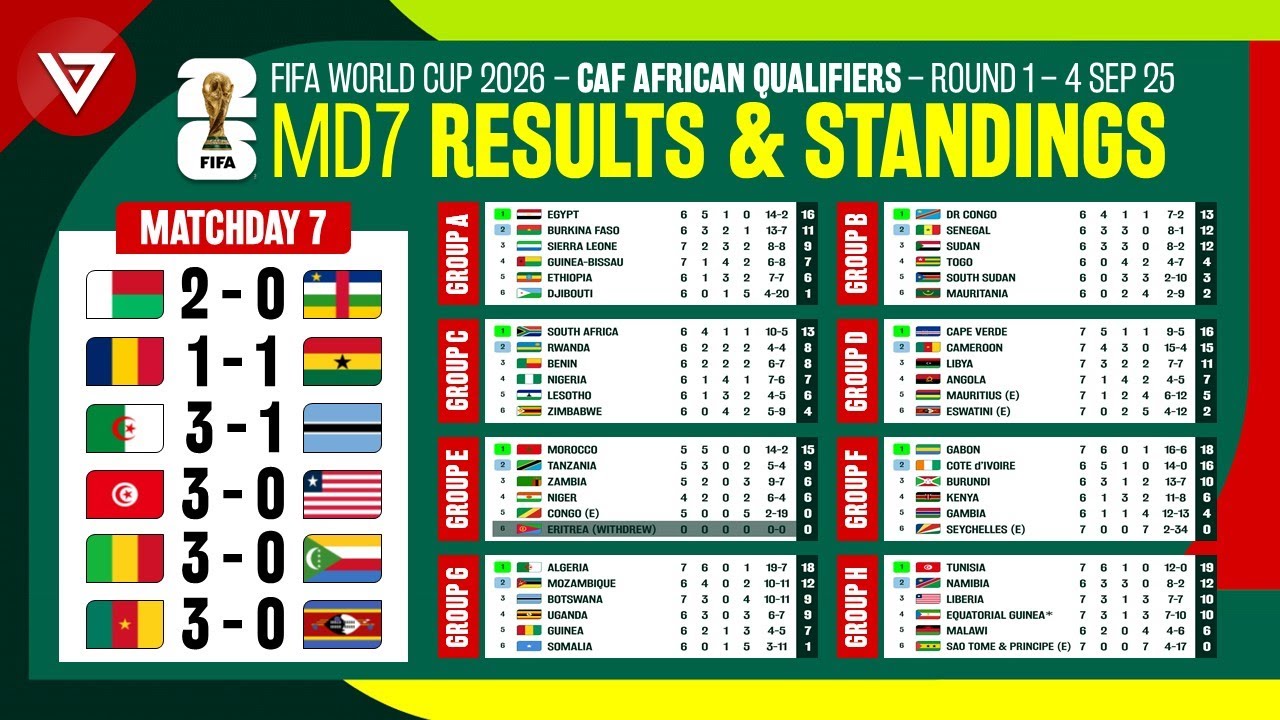Introduction
The CAF World Cup qualifiers play a crucial role in determining which African nations will compete in the prestigious FIFA World Cup. With the global football stage set to return in 2026, the qualifiers have already sparked excitement among fans, players, and football officials alike. The ongoing matches reflect not only the competitive spirit within African football but also the growing level of talent present on the continent.
Current Qualifications Process
The qualifying rounds for the 2026 FIFA World Cup are being conducted in a series of matches involving teams from across the African continent, organized by the Confederation of African Football (CAF). The process began earlier this year and is set to conclude with the top teams securing their spots at the World Cup in the United States, Canada, and Mexico. A total of 54 African nations are participating, with each nation vying for one of the allocated spots.
As of now, the initial rounds have seen some thrilling matches, showcasing the skill and determination of lesser-known teams against established powerhouses. This qualifying cycle, a record six teams will qualify, making every match vital in the race to the World Cup.
Highlights and Key Matches
In the initial rounds, teams such as Senegal, Nigeria, and Egypt have emerged as front runners, capitalizing on their previous World Cup experiences. Recent matches have witnessed stunning performances, with players like Mohamed Salah and Sadio Mané showcasing their talents on the international stage. However, upsets have also marked the qualifiers, with lower-ranked teams delivering surprising results against top-tier competition.
Impact on African Football
The significance of the CAF World Cup qualifiers extends beyond just qualification. They provide a platform for African players to be scouted by international clubs, increasing their marketability and opportunities globally. Furthermore, strong performances by African nations could lead to greater investment in local football infrastructure, development programs, and increased support from fans and sponsors alike.
Conclusion
As the CAF World Cup qualifiers progress, the stakes are high for all participating teams. With an increasing number of spots available for African nations in the World Cup, the competition is fierce, and the passion of fans continues to rise. The outcome could provide vital momentum for football development across the continent, inspiring future generations of players. For fans following the action, the qualifiers are not just about winning; they are a testament to the growth of African football on the world stage.


